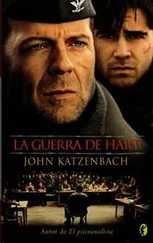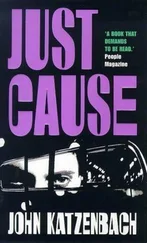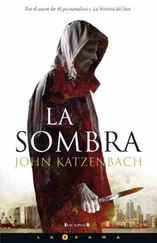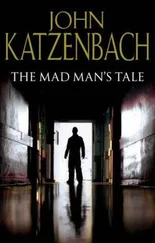This year, everything was different. He carried nothing in his hands, but the baggage that accompanied him was heavier than any he could ever remember, even the first summer after his wife had died.
The bus unceremoniously deposited him on the black macadam of the parking lot at the Lobster Shanty Restaurant. He had never eaten there in all the years of coming to the Cape-put off, he supposed, by the smiling lobster, wearing a bib and waving a knife and fork in its claws that adorned the sign above the restaurant entrance. There had been two cars waiting there for other passengers, both of which sped off after picking up a couple of Ricky’s fellow travelers. There was a little damp chill in the morning, and some misty fog hung over some of the hills. Dawn’s light was turning the world around him gray and vaporous, like a slightly out-of-focus photograph. Ricky shivered standing at the curb as he felt the morning creep beneath his shirt. He knew precisely where he was, a little over three miles from his house, a place he’d driven past hundreds of times. But to see it from the hour and the circumstances made it all seem alien, just slightly out of harmony, an instrument playing the right notes in the wrong key. He entertained the idea of calling for a cab only a minute or two, then trudged off down the highway, marching with the hesitant step of a battle-weary soldier.
It took just under an hour for Ricky to reach the dirt road that led down to his house. By this time the inevitable heat and sunlight that the August morning promised had gathered, driving away some of the mist and fog from the surrounding hillside. From where he stood by the entry to his home, he could see three black crows perhaps twenty yards away down the highway, picking aggressively at the carcass of a dead raccoon. The beast had picked the wrong, dark moment to cross the road the night before, and in that second had been turned into another animal’s breakfast. The crows had a way of feeding that momentarily captured Ricky’s attention: They stood by the dead animal, heads pivoting back and forth, swiveling right and left as they inspected the world for threats, as if they understood the danger of standing in the road, and no hunger, no matter how acute, would allow them to drop their wariness even for a second. Then, once persuaded that they were safe, their cruelly long beaks would dip and tear at the carcass. They pecked at one another, as well, as if reluctant to share in the abundance left behind by a speeding BMW or SUV. It was a common sight, and ordinarily Ricky would have barely noticed. But this morning, it infuriated him, as if the birds’ display was meant for him. Carrion, Ricky thought angrily. Picking at the dead. He suddenly started waving his arms and gesturing wildly in their direction. But the birds ignored him until he took a few menacing steps at them. Then with a chorus of raucous alarm, they lifted up into the air, circling above the trees momentarily, then returning, seconds after Ricky retreated to his driveway. They are more determined than I, Ricky thought, almost overcome with frustration, and he turned his back on the scene, walking steadily but shakily through a tunnel of trees, his shoes kicking up small clouds of dust from the road surface.
His house was barely a quarter mile from the road, but hidden from roadside view.
Most of the new construction on the Cape wears the arrogance of money in both design and location. Large homes slapped down on every hillside and promontory, pitched to gather whatever view of the Atlantic can be acquired. And, if no water view is available, then bent so that they look upon glades, or stands of the thick tangles of wind-stunted trees that dominate the landscape. New houses are designed to look at something. Ricky’s house was different. Built well over a hundred years earlier, it had once been a small farm, so it was set at the edge of fields. The fields that had once grown corn were now part of conservation land, so there was an automatic isolation to the location. The house found peace and solitude less in the vista it looked out upon, and more from an ancient connection to the land beneath its foundation. Now it was a little like an old, graying pensioner, slightly tattered and shopworn, frayed about the edges, who wore his medals on holidays, but preferred to spend his hours catnapping in the sunlight. The house had done its duty for decades, and now rested. It had none of the energy of modern homes, where relaxation is almost a demand and a pressing requirement.
Ricky walked through the shadows beneath overhanging trees until the road emerged from the modest forest and he saw the house tucked in the corner of an open field. That the house was standing almost surprised him.
He stood on the front stoop, relieved that he’d found the spare key beneath the loose gray flagstone, as expected. He paused for a moment, then unlocked the door and stepped inside. The musty smell of stale air was almost a relief. His eyes quickly absorbed the world inside. Dust and quiet.
As Ricky recognized the tasks that awaited him-tidying up, sweeping out, getting the house ready for his vacation-an almost dizzying exhaustion filled him. He walked up the narrow flight of stairs to the bedroom. The wooden floorboards, warped and worn with age, creaked beneath his tread. In his room, he opened the window so that warm air would pour over him. He kept a photo of his dead wife in a drawer of a chest, a curious place to store her picture and her memory. He went and pulled it out, and then clutching it like a child would a teddy bear, tossed himself onto the creaky double bed where he’d slept alone for the past three summers, dropping almost immediately into a deep, but unsettled sleep.
He could sense that the sun had scoured the day when he opened his eyes to the early afternoon. For a moment, he was disoriented, but then, as he awakened further, the world around him jumped into focus. The world outside was familiar and much loved, but seeing it seemed harsh, almost as if the vista that was most comforting was oddly out of his reach. It gave him no pleasure to stare at the world around him. Like the picture of his wife that he still clutched in his hand, it was distant, and somehow lost from him.
Ricky moved to the bathroom, splashing cold water on his face at the sink. His face in the mirror seemed to have aged. He placed his hands on the edge of the porcelain, and stared at himself, thinking he had much to do, not much time to do it.
He moved swiftly to the ordinary chores of summertime. A trip to the barn to pull the car cover off the old Honda, and plug in the electric battery charger that he kept in storage there precisely for this moment every summer. Then, as the car was being reenergized, he went back to the house and started to strip the furniture covers off, and run a quick few broom swipes along the floors. There was an old feather duster in the closet as well, and he got this out and immediately turned the interior of the house into a world of dust mites, spinning in shafts of sunlight.
As was his custom on the Cape, he left the front door open, when he left. If he’d been followed, which was possible, he didn’t want to force Virgil or Merlin or anyone associated with Rumplestiltskin to break in. It was as if this would somehow minimize the violation. He did not know if he could tolerate anything else in his life being broken. His home in New York, his career, his reputation, everything associated with who Ricky thought he was, and everything that he had built into his life, had systematically been ruined. He felt a sort of immense fragility descending upon his heart, as if a single crack in a windowpane, a scratch on the woodwork, a broken teacup, or a bent spoon would be more than he could manage.
He breathed a long sigh of relief when the Honda started up. He pumped the brakes and they seemed to work, as well. He backed the car out gingerly, all the time thinking: This is what it must feel like to be close to death.
Читать дальше












